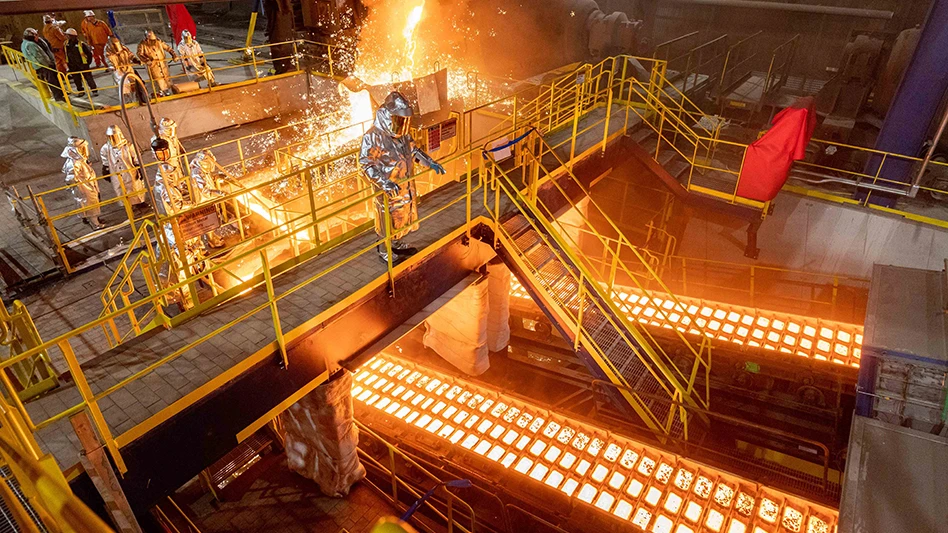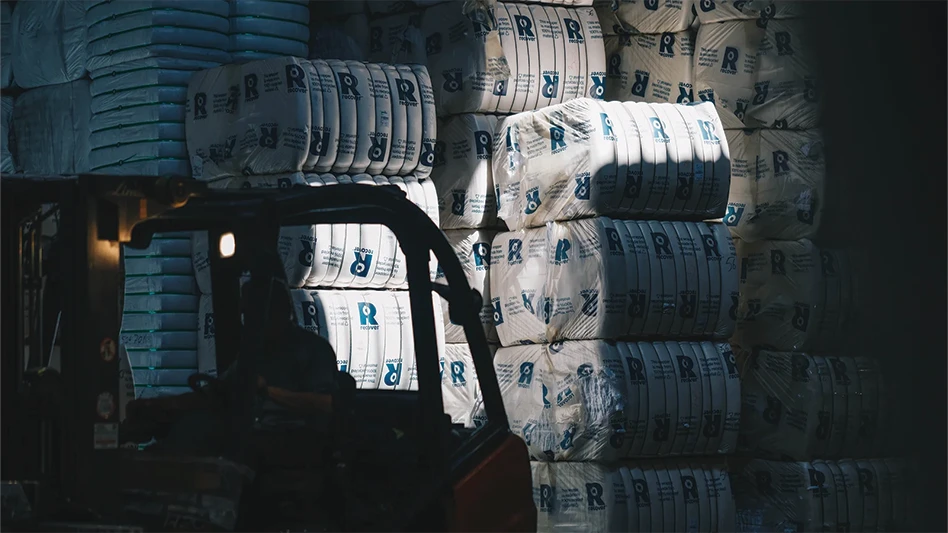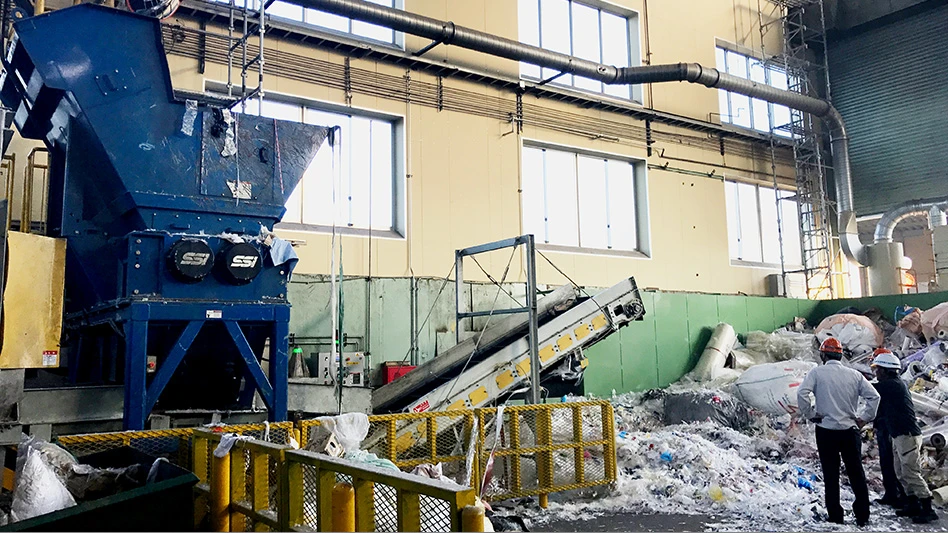While the supply of secondary plastics has remained stable, according to a broker based on the East Coast, “Demand has fluctuated, and I think that is the bigger issue driving prices.”
He adds that this fluctuation has to do in part with sluggish export demand in light of the strong U.S. dollar.
However, he notes, demand varies by resin type. “For example, [the] PET (polyethylene terephthalate) market has increased demand, driving the price up slowly over the last few months,” the broker says.
“PET, I think, is the most stable of grades,” he continues. “This is because the bottom came in several months ago, and now additional end users are entering the market, causing an increase in demand and price.”
HDPE (high-density polyethylene), on the other hand, continues to search for a bottom to the market, he adds.
Pricing for bales of natural HDPE declined to 37 cents per pound FOB (freight on board) in the southern U.S. in late July, according to PetroChem Wire, Austin, Texas. In May, pricing for this material in the South was at 40 cents per pound, having gained 10 cents per pound, or 32 percent, from the start of the year, according to PetroChem Wire. The news and pricing service says the reason behind that increase was a shortage of natural HDPE scrap in parts of the eastern U.S.
“The most recent change to the market will come with Entropex going out of business,” the broker says, referring to the Sarnia, Ontario-based recycler of polyethylene and polypropylene.
According to a statement from Entropex President Keith Bechard, “For the past several months, Entropex has struggled to meet the financial challenges caused by the dramatic decline in oil prices and a very competitive business environment. Despite our best efforts to reduce costs, the costs of operating Entropex’s business remain prohibitively high and unsustainable.”
He says the company’s “deteriorating financial position” led its bankers to call Entropex’s bank loan in early July and ask the court to appoint a receiver to take over the business.
London, Ontario-based MNP Ltd., the court-appointed receiver for Entropex, says it plans to seek a buyer who will reopen the plant.
In the meantime, the East Coast broker says Entropex’s closure “will put a lot of mixed bales (both Nos. 3-7 and Nos. 1-7) back on the market, driving the price down to zero.”
“Demand has fluctuated, and I think that is the bigger issue driving prices.” – a broker based on the East Coast
He adds, “If the export market doesn’t come in buying strong, or if the PET and HDPE markets don’t rise, we expect the mixed bale market to be severely depressed.”
A pickup in export buying seems unlikely, however. “The reason is that the dollar is very strong, making it much more expensive to purchase domestic product for overseas production,” the broker says.
“When you add in the cost of ocean freight, it makes most grades noncompetitive,” he continues.
Regarding truck transportation, the broker says produce season in the West and the start of the holiday shipping season will affect pricing and availability.

Explore the August 2016 Issue
Check out more from this issue and find your next story to read.
Latest from Recycling Today
- Biden officially blocks Nippon Steel’s acquisition of US Steel
- Highland Sanitation awarded solid waste and recycling contract in Wanamingo, Minnesota
- Ecobat gathers support for California permit renewal
- RecyclX platform designed to provide materials transparency
- Turkish mills sampled wide scrap market in 2024
- GLE Scrap Metal acquires interest in Mallin Cos.
- 2024 marks strong year for Van Dyk
- Recycled metal portrayed as former dictator’s fiefdom





